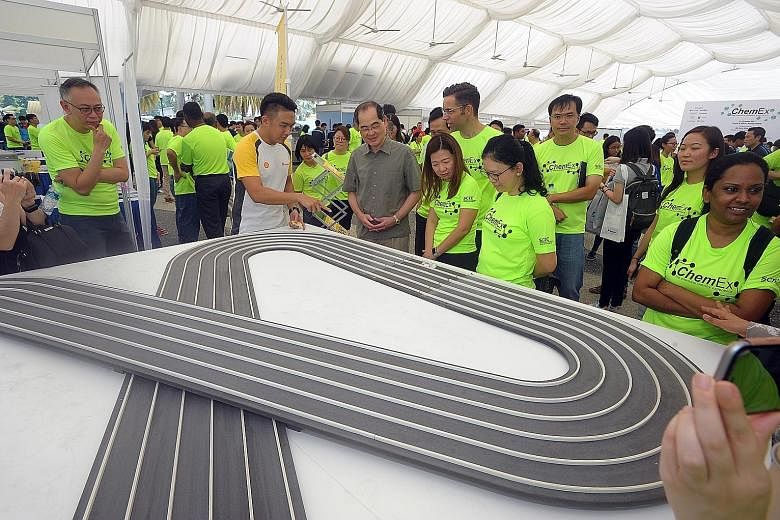A new road map has been laid out for Singapore's energy and chemicals sector that aims to create $12.7 billion in value-add and 1,400 new jobs by 2025.
This Industry and Transformation Map (ITM) includes plans to transform the existing base of chemical manufacturing through the adoption of innovative technologies.
It will also look at diversifying into new markets and developing new innovation capabilities to capture growth opportunities.
Minister for Trade and Industry (Trade) Lim Hng Kiang, who launched the ITM on Saturday, noted that Singapore now has an extensive chemicals value chain spanning from refining and olefin production, to chemicals manufacturing, that is supported by innovation and research - all without producing a single drop of oil.
Today, Singapore is the world's fifth-largest refinery export hub and ranks within the top 10 globally by chemical exports volume.
Mr Lim said: "While we have done well to get to where we are, we face new challenges in the road ahead.
"Rapid technology advancements are disrupting value chains across industries, while creating new possibilities and opportunities. At the same time, the global operating environment remains uncertain."
Innovation will be a key driver of the two-pronged strategy, he said.
The first is to drive the adoption of advanced manufacturing technologies across the industry. Such technologies - including robotics and industrial Internet of Things - are changing the way products are created, supply chains managed and value chains defined globally.
These innovations will allow companies here to be more competitive by overcoming land, labour and carbon constraints as well as raising productivity, said Mr Lim.
"By 2020, we aim to have 20 energy and chemicals plants, including all refineries and crackers, adopt advanced manufacturing technologies," he said.
"This will provide a strong foundation for our effort to be scaled to the rest of the industry."
The second prong is to focus on building capabilities such as applied research or novel platform strategies to accelerate innovation and shorten the go-to-market process.
This will help companies here better tailor products and solutions to customers' needs, and capture growth in the region, said Mr Lim.
To this end, the Economic Development Board (EDB) and A*Star have come up with a joint technology road-mapping exercise to identify the technology needs of companies, and invest in relevant technologies and capabilities.
A Skills Framework, developed by SkillsFuture Singapore (SSG), Workforce Singapore and the EDB, was also launched as part of the ITM. It provides information on career pathways and highlights emerging skill sets in areas such as robotics.
The SSG has launched four SkillsFuture Earn and Learn Programmes (a work-learn programme targeted at polytechnic and ITE graduates) for jobs such as process technicians and laboratory analysts. Already, 91 graduates have been placed in 31 energy and chemicals companies through the programmes.
Another two such programmes catering to ITE graduates will be rolled out by next year.


